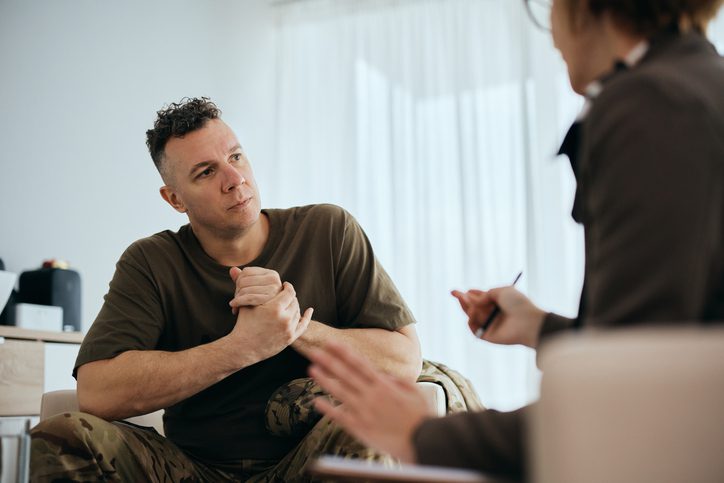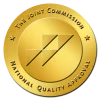The brave men and women who serve in the military often face unimaginable challenges during their service, and unfortunately, some carry the invisible scars of war long after returning home. Post-traumatic stress disorder (PTSD) is a common type of anxiety disorder that affects many Veterans.
Service members can experience traumatic events during deployment, such as combat exposure, witnessing casualties, and facing life-threatening situations. These experiences, coupled with prolonged separation from loved ones, can contribute to PTSD. Additionally, military sexual trauma, accidents, and the loss of comrades may also trigger PTSD. Non-military causes include physical or sexual assault, natural disasters, and accidents.
The impact of PTSD extends beyond the individual, affecting mental health, relationships, and daily functioning, necessitating timely intervention and support. It’s essential to understand that PTSD is not a sign of weakness; instead, it is a response to abnormal and overwhelming circumstances.
Warning Signs of PTSD
Recognizing the warning signs of PTSD in Veterans is a critical step toward providing timely intervention and support. The Veteran may be in denial or may not be aware of the signs but their close friends and loved ones may recognize them.
Symptoms may vary from person to person, but common indicators that a Veteran loved one may be struggling with PTSD include:
- Flashbacks and nightmares: Veterans grappling with PTSD may find themselves reliving traumatic events through intrusive memories or disturbing dreams, often causing considerable distress and anxiety.
- Hyperarousal: A heightened state of arousal, known as hyperarousal, may manifest as increased irritability, difficulty sleeping, and a constant feeling of being on edge.
- Avoidance: Another warning sign is avoidance, where Veterans intentionally distance themselves from reminders of the traumatic incident. This may involve avoiding places, people, or activities associated with the traumatic event as the emotional toll becomes overwhelming
- Negative changes in mood and thoughts: Veterans may exhibit persistent feelings of guilt, shame, or anger. Distorted thoughts about themselves, others, or the world may contribute to a sense of isolation and hopelessness.
Recognizing these warning signs is only the first step. It is crucial for loved ones and support networks to encourage Veterans to seek professional help. Timely intervention can significantly improve the quality of life for Veterans struggling with PTSD.
What Help is Available for Veterans with PTSD
Fortunately, Veterans struggling with PTSD can find hope and support through a variety of avenues. Resources and treatments available to support Veterans struggling with PTSD include the following:
- Therapy: Professional help, including evidence-based therapies like cognitive behavioral therapy (CBT) and Eye Movement Desensitization and Reprocessing (EMDR), have shown effectiveness in treating PTSD.
- Medication: Certain medications may be prescribed to help manage symptoms, especially when used in combination with therapy.
- Support groups: Support groups can connect Veterans to other Veterans who have similar experiences and challenges and can provide a sense of understanding and camaraderie.
- Holistic approaches: Holistic approaches such as yoga, mindfulness, and meditation can complement traditional treatments, promoting overall well-being.
- Inpatient or outpatient care: Depending on the severity of PTSD and the Veteran’s unique needs, inpatient or outpatient care may prove beneficial.
In addition, Veterans can contact the Department of Veterans Affairs (VA) for mental health services, including counseling, therapy, and psychiatric care.
How a Mental Health Recovery Center Can Help
Mental health recovery centers, such as Creekside Behavioral Health, offer a specialized and comprehensive approach to healing for Veterans with PTSD. These centers often provide:
- Specialized programs: Tailored treatment plans that address the unique needs of Veterans, incorporating evidence-based therapies and holistic approaches.
- Experienced staff: Mental health professionals with expertise in working with military personnel, understanding the specific challenges they face.
- Peer support: The opportunity to connect with fellow Veterans in a supportive environment, fostering a sense of community and understanding.
- Family involvement: Inclusion of family in the recovery process, recognizing the crucial role loved ones play in the healing journey.
There is help available for Veterans struggling with PTSD. At Creekside Behavioral Health in Kingsport, Tennessee, we can provide the necessary tools and support for Veterans to reclaim their lives and embark on a journey toward healing. Learn more by contacting us today.







